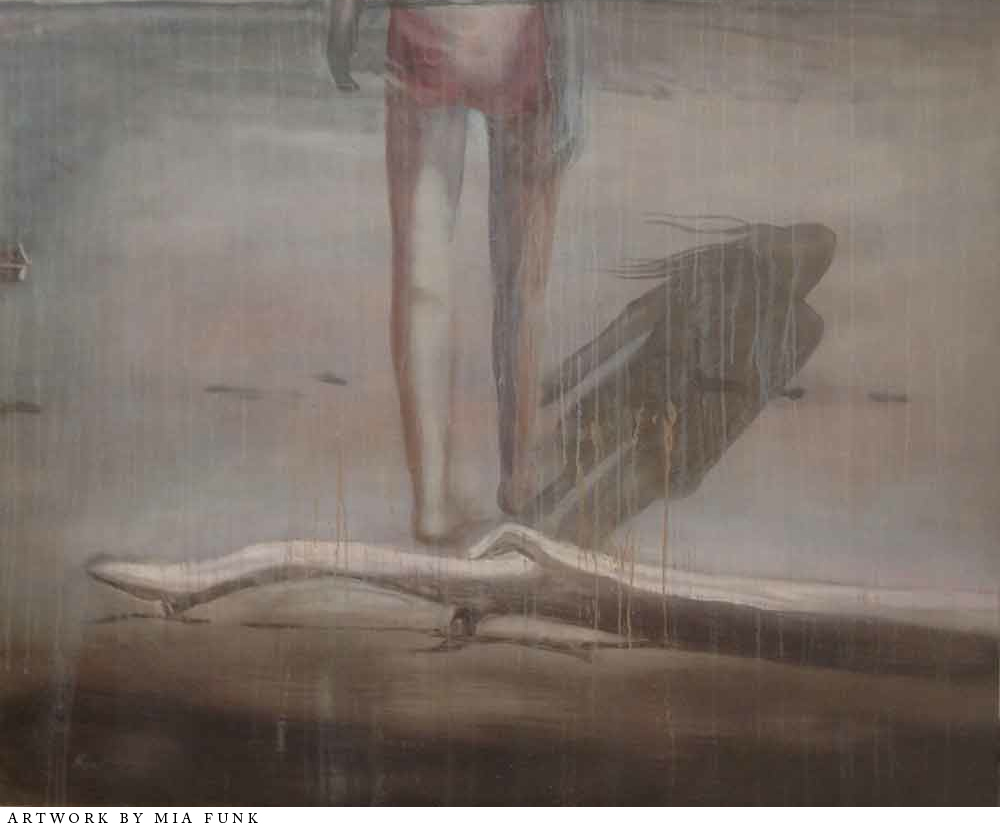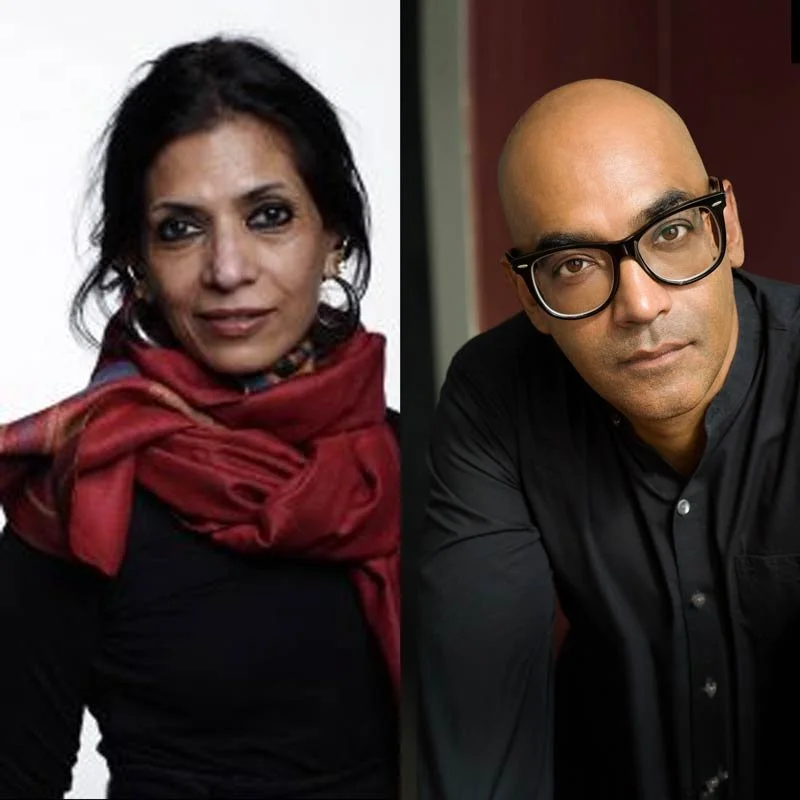“You are looking at life through an old pair of eyes and a new pair of eyes.
And there's always that ambivalence–Where do you belong? And how do you belong?
And I do think these are advantages of immigrant writers
or writers with two languages or who have two worlds.”
–YIYUN LI
Story appeared in Slice Magazine, “Resistance” issue # 16
“URGENT!” Giovanni’s text said, “Call now,” and the list of catastrophic fears that a person lists went through my mind. He picked up right away: what took you so long, been trying to call for hours, ovens on super sale, you want one, tell me pronto, before someone else takes them, only two left, OK got one in my hands RIGHT NOW, store is closing RIGHT NOW.
It was hard to believe that this would be our third oven together and all of them here in Paris. The first two had been delivered by our Neapolitan truck driver friend, Lello, who made weekly Napoli-Paris runs for a produce wholesaler and who packed stuff for us in his extra refrigeration storage area underneath the truck cabin. Over the years, he’d brought us drills, capers in salt, duct tape, Titina’s preserved tomatoes (Giovanni’s mother), tubs of glue, homemade red wine (Giovanni’s), sweaters, a Chinese sword, books (Italo Calvino, chess strategies, and a big cookbook of pasta sauces), screws, prosecco, an old pair of tennis shoes, Gaeta olives, homemade limoncello (Giovanni’s). Not that they didn’t have some of this stuff in Paris, but over the years we’d gotten in the habit of asking Lello, and he didn’t mind doing it. His was kindness in the form of industrial refrigeration. It was thanks to Lello that I’d first tasted scialatelli, the flat and square-shaped spaghetti from the Amalfi Coast that were as near-perfect a match as you could get for a puttanesca sauce.
Everything arrived cold—all the way through, the kind of cold that can’t be burnt or baked out when it gets into your fingers. The sort of cold that you can feel in the one thousand miles between Paris and Napoli, and the cold that in summer months makes your hands smart.
By the time we bought the third oven, I’d been in Paris for a decade, Giovanni and I had been together eight years, and we’d been living together for four. We were long distance between Paris and Napoli for the first four years; it was hard, but you get used to a lot of things and the traveling part was really good. On one of my first trips to Napoli, I remember looking out the airplane window at the soft brown-green slope of Vesuvius and being surprised by how much it looked like a flattened-down mountain. Some people say it’s a big oven waiting to burst. We went to the top of the Vesuvius once, and there was a lot more loose dirt than I’d expected. Around the bottom of the crater and as we kept walking up, there were clusters of tiny yellow flowers poking through the grayish-brown slope, and parts of the ground spit out little bursts of sulfur clouds. The area right around Napoli, like the little city where Titina was born, is in the zona rossa, red zone, of the volcano, which means that if there’s an eruption, entire cities will be in the direct line of lava flows and ash.
* * *
Giovanni and I first met in Paris through a mutual friend, and we met in English because I didn’t speak any Italian and he didn’t speak any French and English can be easy for some things. These many years later, we get by on a hybrid of his cobbling together of French, my bad Italian, a few words of Neapolitan, and his fearlessly attempted English. We’ll start talking and aren’t sure in what language the conversation will finish.
We ended up having a fight the night that he brought home the third oven. It stayed in its box for days. I tried not to think about it each morning at breakfast. (The oven was right there.) The fight about the oven was about the toothpaste that was about how wasteful I could be and how rigid he could be. “You don’t squeeze out enough,” he said. “You know there’s more in there.” The part about being wasteful or rigid was about having a hard time committing—to the oven temperature, to the toothpaste, to things between us. “You don’t love the same way,” he said, waving towards the oven. He forgot it, you don’t love it the same way.
* * *
Lello usually arrived at the Rungis International Market outside of Paris around midnight, when it was dark of dark: trucks in nightfall, empty roads, only a few signs outside of restaurants that were open all night, mostly seafood places—blinking neon crabs or a sea creature, crooked, spilling out of a stewpot. Lello owned his eighteen-wheeler and had photos of his family (wife and two young daughters) and a prayer card of the Madonna dell’Arco pasted up in the inside of his cabin and a flashing colored light sign above the rearview mirror: *L*E*L*L*O*. Everything had been customized, and the cabin was swanky, like a miniature luxury hotel room only with a steering wheel, gearshift, and monogrammed floor mats. The cabin was much more than a cabin for him. He had a special light system installed underneath the berth of the truck that shone out onto the highway at night, flashing the colors of the Italian flag: green, red, and white.
In the summer of 2005, Lello stopped coming to Paris for a while when there was the big fire in the Fréjus Road Tunnel that connects France and Italy. The tunnel is nearly eight miles long, and opened in 1980, and in the first twenty years, more than twenty million vehicles drove through it. There was a leak, a fire started and spread, and two truck drivers were killed. It took six hours to bring the fire under control. One of the survivors said, “I suddenly saw smoke and started to run towards Italy.” You don’t always know where danger comes from. See fire, run towards Italy.
* * *
The oven was the size of two shoe boxes. You get used to reduced size in Europe—small cars, tiny hands. Things fit differently into things. The big bonus of this oven, in addition to the price, was that it featured a spit. “Think of the meats we can roast,” Giovanni said, thinking of me because he didn’t really like meat. I thought of a suckling pig, turning and turning on the spit, in the miniature oven, roasting in our ten-square-foot kitchen, our faces lit up and soft from the color of the heating mechanism.
The cooking indications on the oven weren’t in any language; they were smudges of drawings, the kind that scratched off with your fingernails or that dripped and melted after the first couple times something had been cooked. Two temperatures were marked: 0 and 235 degrees Celsius. Maybe that’s all the choice you need.
On the fourth day with the unopened oven, I told Giovanni that we should open it. “Don’t care,” he said. He forgot the you, or he forgot the I: you don’t care, or I don’t care. He didn’t say. Maybe we didn’t love the same way. It wasn’t the first time that I had thought that. Maybe it was a question of degrees.
–
Heather Hartley is Paris Editor for Tin House magazine and the author of Adult Swim (2016) and Knock Knock (2010) both from Carnegie Mellon University Press (distributed by University Press of New England). Her short fiction, poems, essays and interviews have appeared in or on PBS Newshour, The Guardian, Tin House, Slice, The Literary Review, Post Road and other venues. She has presented writers at Shakespeare and Company Bookshop, and her column about literary Paris, “Apéritif,” appears on the Tin House website. She has taught creative writing at the American University of Paris and the University of Texas El Paso MFA program.


















































